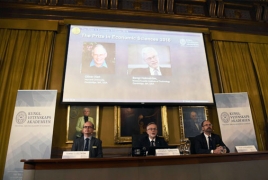
Oliver Hart and Bengt Holmstrom were awarded the Nobel Memorial Prize in Economic Science on Monday, October 10 for their insights into how best to write contracts, the deals that bind together employers and their workers, or companies and their customers, The New York Times reports.
Dr. Hart, a professor at Harvard, and Dr. Holmstrom, a professor at the Massachusetts Institute of Technology, have sought to determine how contracts can encourage mutually beneficial behavior.
In the 1970s, Dr. Hart developed rules for executive pay, showing how the owners of companies should reward the people paid to lead those businesses. He demonstrated, for example, that pay should be tied to long-term performance through mechanisms such as rewarding executives gradually.
Another crucial issue: Contracts are rarely complete. Parties must often address questions that are not explicitly anticipated when a document is drawn up. Dr. Hart’s research in the 1980s focused on what kind of rules can be included to encourage mutually beneficial decision-making.
“His research provides us with theoretical tools for studying questions such as which kinds of companies should merge, the proper mix of debt and equity financing, and which institutions such as schools or prisons ought to be privately or publicly owned,” the Royal Swedish Academy of Sciences said in a news release announcing the prize.
The two winners spoke via an audio connection to a news conference hosted by the academy, which awarded the prize. Dr. Holt said he was “very surprised and very happy” to get the news. Asked how his day was going, Dr. Holmstrom said there was “a sense of things being surreal.”
Dr. Hart said that he hugged his wife, woke his son and then spoke by phone with Dr. Holmstrom, whom he has known for years. Both scholars teach in Cambridge, Mass.
“I woke at about 4:40 and was wondering whether it was getting too late for it to be this year, but then fortunately the phone rang,” Dr. Hart said.

